Table of Contents
ToggleIn a world where information overload is the norm, finding reliable answers can feel like searching for a needle in a haystack. Enter ChatGPT, your witty research sidekick, ready to help you navigate the vast sea of knowledge. With its ability to generate human-like text, it’s like having a super-smart friend who never tires of answering your questions—no coffee breaks required!
Understanding ChatGPT
ChatGPT serves as an innovative tool for research, streamlining the search for information. It can generate coherent responses across a wide range of topics.
What Is ChatGPT?
ChatGPT is an advanced AI language model developed by OpenAI. This model uses deep learning techniques to generate human-like text, making it useful for querying complex topics. Users interact with ChatGPT through simple prompts, receiving contextually relevant responses. Research activities become more efficient with this tool. Leveraging natural language processing, it understands and responds to queries effectively, enhancing the user experience.
Key Features of ChatGPT
ChatGPT boasts several key features that support its role as a research assistant. Firstly, it provides instant responses, saving significant time compared to traditional research methods. Secondly, ChatGPT generates context-aware answers, improving clarity and relevance. Including versatility, it caters to various subjects, from science to literature. Additionally, users can fine-tune queries to receive more specific information. Incorporating engaging conversational styles keeps the interaction lively. Overall, these features create an efficient research environment.
Preparing for Research
Preparing for research involves clear steps that lay a strong foundation. Defining research questions helps structure the inquiry process.
Defining Your Research Questions
Crafting precise research questions directs the focus of the inquiry. Narrowing topics into specific questions increases the ability to receive targeted responses. For instance, instead of asking “What is climate change?”, try “What are the impacts of climate change on polar ice caps?” This specific approach elicits more relevant information. Refining questions encourages a deeper understanding of the subject and establishes priorities for the research.
Gathering Necessary Materials
Assembling necessary materials enhances the overall effectiveness of research. Compiling a list of sources to consult offers a clear pathway forward. Include academic articles, relevant books, and reliable websites. Utilizing tools like citation managers helps organize the gathered materials efficiently. Prioritize accessible formats such as PDFs or articles in online databases. Gathering these materials beforehand accelerates the research process and ensures that time spent with ChatGPT provides the most valuable insights.
Conducting Research with ChatGPT
Engaging effectively with ChatGPT enhances the research experience. Users can pose questions in a conversational manner, allowing for a more natural flow of information. Starting with broader inquiries can lead to more detailed follow-ups, promoting deeper exploration of topics. ChatGPT responds dynamically to prompts, which makes adjusting questions on-the-fly seamless. Engaging in dialogue creates an interactive learning atmosphere, turning research into an engaging activity.
Engaging in Conversations
Users create an interactive environment through conversational exchanges with ChatGPT. Fostering a natural back-and-forth encourages clarification and specificity. Initiating discussions about complex subjects invites more detailed responses. Encouraging nuance in dialogue often unearths valuable insights. Steering the conversation towards particular subtopics allows users to delve deeper. Exploring multiple perspectives strengthens understanding and enhances the richness of the research output.
Utilizing Prompting Techniques
Crafting effective prompts is central to obtaining useful information from ChatGPT. Formulating specific questions leads to more accurate answers. Asking open-ended questions can spark broader discussions, while targeted queries yield precise data. Implementing keywords relevant to the research topic helps streamline responses. Experimenting with different phrasing reveals the flexibility of ChatGPT’s capabilities. Using follow-up questions maintains focus and directs the conversation toward desired goals.
Analyzing Responses
Analyzing responses from ChatGPT is crucial for effective research. Users must evaluate the quality and reliability of the information obtained through this AI tool.
Evaluating Information Quality
Begin by assessing the credibility of the responses. Reliable information typically comes from well-regarded sources or established data. Look for logical consistency within the answers provided. Explore the depth of the responses; thorough answers often indicate a better understanding of the topic. Users can consider the relevance of the information to their specific research questions. Fact-checking against established knowledge enhances the integrity of findings. Overall, maintaining a critical eye ensures users don’t rely solely on AI-generated content.
Cross-Referencing with Other Sources
Cross-referencing information from ChatGPT with other sources enhances research accuracy. Utilize academic journals, reputable websites, and books as additional references. Confirming facts through multiple channels prevents misinformation and strengthens arguments. Users can search for contrasting viewpoints to cultivate a well-rounded understanding of the topic. Documenting sources also aids in establishing credibility. Engaging with secondary sources after engaging with ChatGPT ultimately enriches the overall research process.
Best Practices for Effective Research
Conducting research with ChatGPT can enhance efficiency and clarity. Optimizing interaction results in better outcomes and a more rewarding experience.
Tips for Crafting Effective Prompts
Begin with specific questions to yield targeted responses. Phrasing inquiries clearly helps ChatGPT focus on relevant aspects of the topic. Use keywords related to the subject matter to direct the AI’s attention. Formulating follow-up questions encourages deeper exploration of ideas. Encourage contextual responses by referring to previous interactions whenever possible. This strategy fosters a more coherent dialogue.
Avoiding Common Pitfalls
Steer clear of vague or broad questions that lead to general answers. Failing to verify information obtained can result in misunderstandings or misinformation. Relying solely on ChatGPT for critical data without cross-referencing reputable sources compromises research quality. Ignoring the need for clarity in prompts may hamper the AI’s ability to provide precise answers. Overlooking necessary context in questions can hinder ChatGPT’s performance, affecting the overall research experience.
Leveraging ChatGPT for research can transform the way individuals gather and analyze information. By defining clear questions and engaging in meaningful dialogue, users can unlock a wealth of insights that enhance their understanding of complex topics.
The ability to adapt prompts and encourage back-and-forth discussions fosters a dynamic research environment. Moreover, evaluating the reliability of responses and cross-referencing with credible sources ensures a thorough and accurate research process.
With these strategies in mind, ChatGPT stands out as an invaluable resource for anyone looking to navigate the vast sea of information efficiently and effectively.




